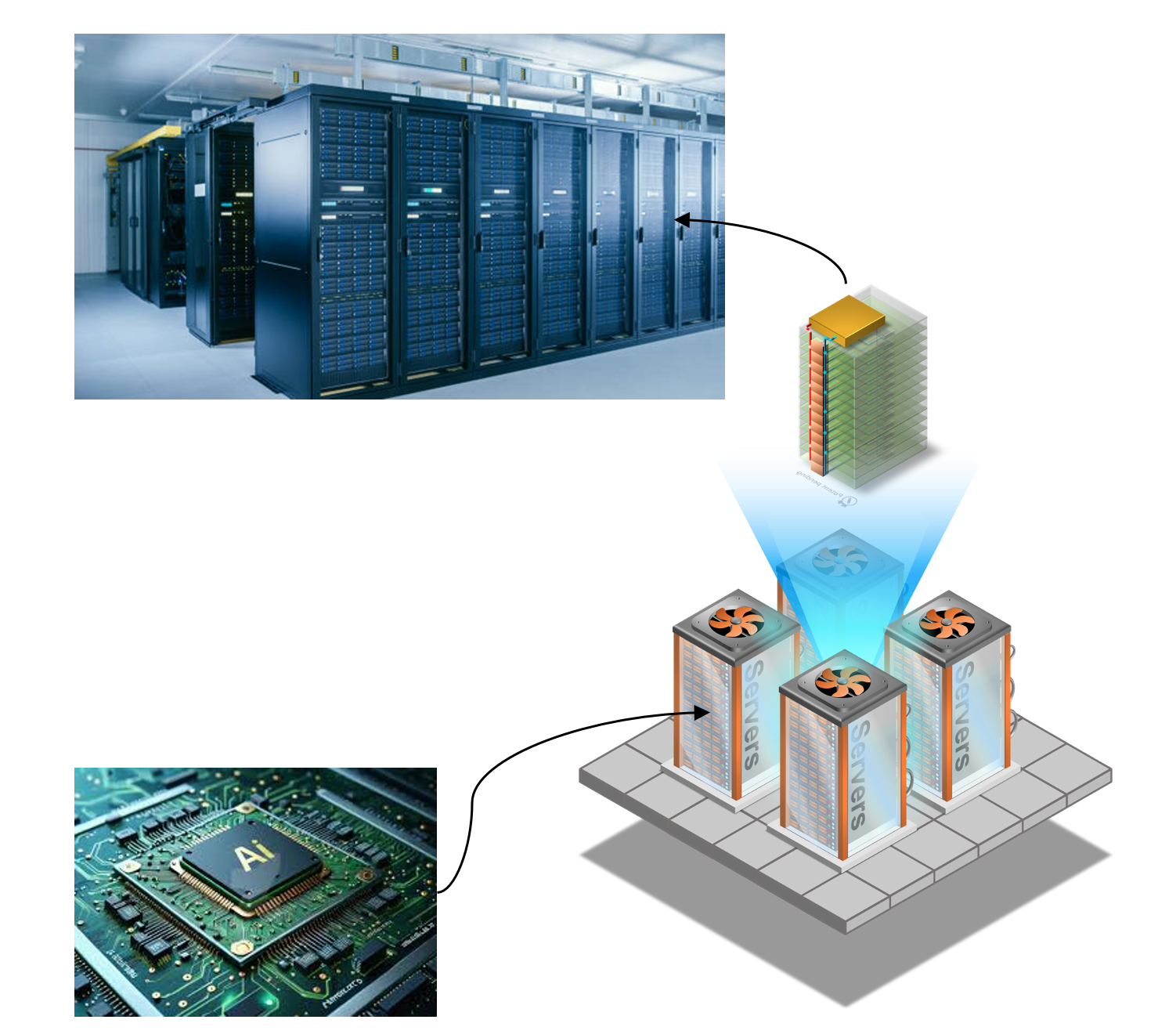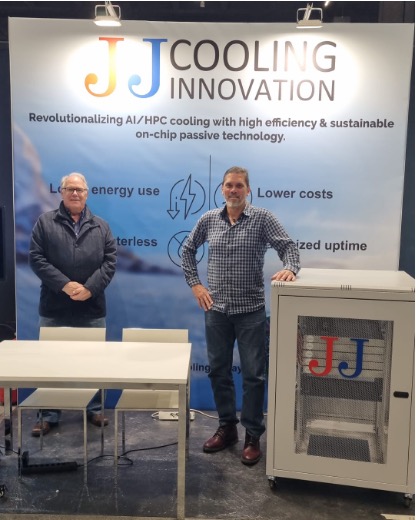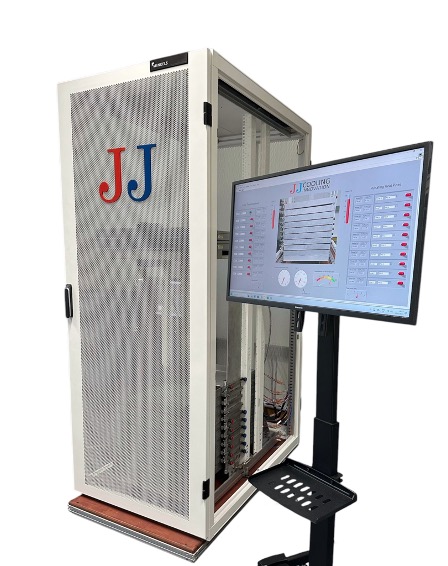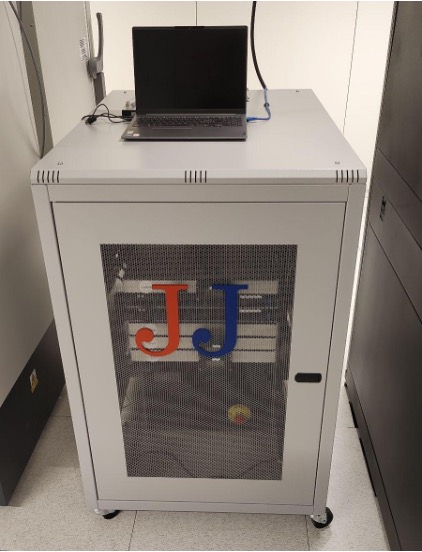CoolRacks: Passive Two-Phase Cooling for High-Density Racks
Cooling the Future — Silently and
Efficiently
Powered by physics.
Validated by science.
Built in Switzerland.


Our systems use evaporation and condensation to transfer heat directly from the chip — no fans, no pumps, no noise.
Passive Cooling: Up to 2 kW per CPU/GPU in compact 1U servers.
Hybrid Systems: Combining gravity-driven and pump-assisted loops for 4 kW+ heat loads.
All designs are validated with proprietary solvers for precise, data-driven optimization.

Highlights:
• Converted 1U–3U racks operating under realistic workloads
• Visualizations of two‑phase operation (evaporation/condensation)
• Bench tests, X‑ray inspections, and leak checks
• Short clips of assembly and hot‑swap procedures


Validated results:
- Data center demo: 72h continuous operation under randomized workloads
- Partial PUE (pPUE) ~ 1.001 compared to ~1.40 for air-cooled baselines
Key metrics:
• Up to 35% TCO reduction (modelled vs. baseline)
• No expensive two-phase quick-disconnects or manifolds and hot-swapping enabled.
• 20%+ energy savings at datacenter level
• Stable passive operation at ~900–2000 W per device (prototyperange)
• Pumped two-phase coldplate/system to >4000W in development
Notes: Measurements based on controlled test campaigns; full OEM certification underway.

Enabling high-density computing across:
- High-Performance Computing (HPC)
- AI & GPU clusters
- Colocation & Hyperscale data centers
- Edge & Telecom infrastructure
- Defense & Aerospace electronics
Benefits: Compact, scalable, low cost, maintenance-free, and waterless.
We collaborate across the value chain — from component suppliers and system integrators to server OEMs and data center operators.
Engagement types:
• Reference designs with OEMs
• Retrofit pilots for colocation
• Evaluation programs for hyperscale deployment
• Joint validation and certification plans
Waterless cooling with eco-friendly refrigerants reduces environmental impact while enabling denser compute.
Benefits:
• 20%+ energy savings vs. air-cooled baselines
• Lower CO₂ emissions via reduced facility power
• Quiet operation; minimal moving parts
• Potential for waste-heat recovery at rack level